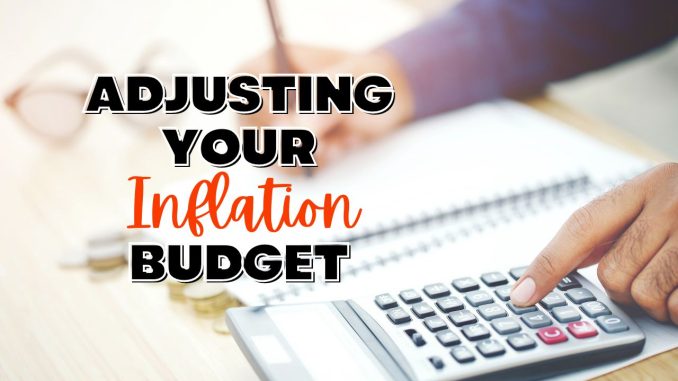
Inflation has been a frequent topic in the news. It’s something that increasingly affects daily life than ever. Managing an individual budget becomes more difficult as the costs of basic necessities outstrip inflation. Paying attention to how inflation is affecting your finances can help you take back some control over your spending and adapt easily with such shifts. Here is some advice on how to deal with inflation and its impact on your budget — practical information born of looking at the increases in prices.
Inflation in its Broadest Sense
Inflation is defined as rising prices over time, which in turn lessens the purchasing power of money. As inflation goes upwards, consumers see their dollars won’t buy (or didn’t even one year ago). For example, if inflation this year is at 5%, then a product which cost $100 last year would now be more than that: $105. This affects everything from food bills to utilities and so it is essential that you adjust your budget accordingly. The Impact on Personal Budgeting Increased Expenditures: As prices go up, your fixed costs such as rent or mortgage payments may begin to be felt more keenly if your earnings are not matching these increases. Reduced ‘Recreational Dollar’: With the basic things you need in life taking a greater percentage of your income, there may well be less money for movies, restaurant dining out and other entertainment. Investment Background: Inflation eats away at the real return on your investments, so you must change your investment strategy in order to cope with rising costs and keep pace.
Tips for Managing Rising Costs
Review and Adjust Your Budget: You can start by looking at your budget. When inflation-driven price increases occur in areas like food and gasoline for example, make adjustments to the categories of where you spend money (You will have to use a spreadsheet or budgeting application in order to keep better records).
The Things in Priority: it is most important to be sure that you have your essentials in order– food, housing and transportation. If you can find ways of reducing how much these three cost. For example taking food with you to work, planning meals in advance so as not to overspend on groceries or using public transport instead of buying petrol for your car.
Cut Unnecessary Costs: Thoroughly examine the items listed as expenses. What subscriptions or memberships are now redundant? Canceling them (either temporarily or permanently) may free up more money for other areas where it would be wiser to allocate resources.
Shop Smart: Each product under inflation has a different effect on its price. Seek out our cheap specials, use coupons and think about buying stock which is traditionally long-lasting in your area of the market. Also, you might be surprised–own brands represent a considerable gain over name brands in terms both of quality and price.
Heed the Warnings: Whenever and wherever you can, take on extra part-time or assigned work to add income of any kind. Whether it is tutoring or freelance writing or serving as an Uber driver full- or part-time, additional income might keep your head above water in times when living costs are spiraling upwards
Invest Wisely: When we are experiencing inflation, you should have a strong portfolio. Think of financial assets which have been especially good bets in times of inflation. For example real estate or commodities. Perhaps you need to get some professional help.
Nest Egg for Emergencies: An emergency fund, OBtained or maintained during times of inflation, is of crucial importance. It can be used to pay for those extra expenses which always crop up during inflation without casting your budget off track.
Keep Alert: Keep in close touch with economic trends and inflation figures. If you are aware of the broad economic context, then you can reasonably expect to forewarn when prices will rise and to adjust your budget accordingly.
Conclusion
Inflation has a real impact on family budget, but through careful planning and intelligent financial decision you can be better prepared for rises in prices.If you revise the financial plan and concentrate on ‘essentials of life although it is almost impossible as can be described by traditional measures’, then even create another source of income or two, once again-you can keep the financial situation at home under control and maximize value for money when it comes under pressure from inflationadequate supply It will be difficult to continue to get on the top, and changing course in time is by far your greatest asset for managing personal finance during these periods of economic instability.